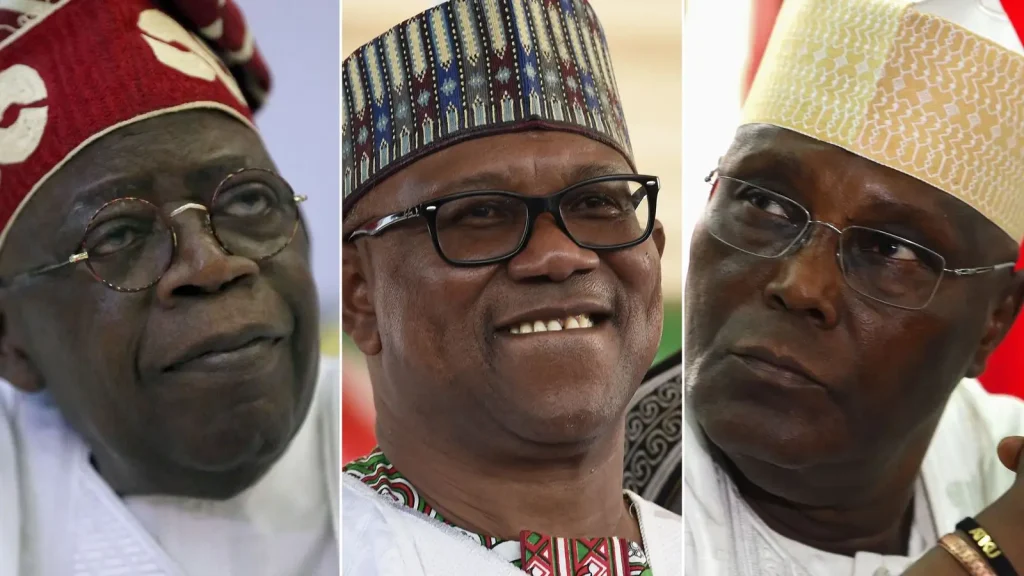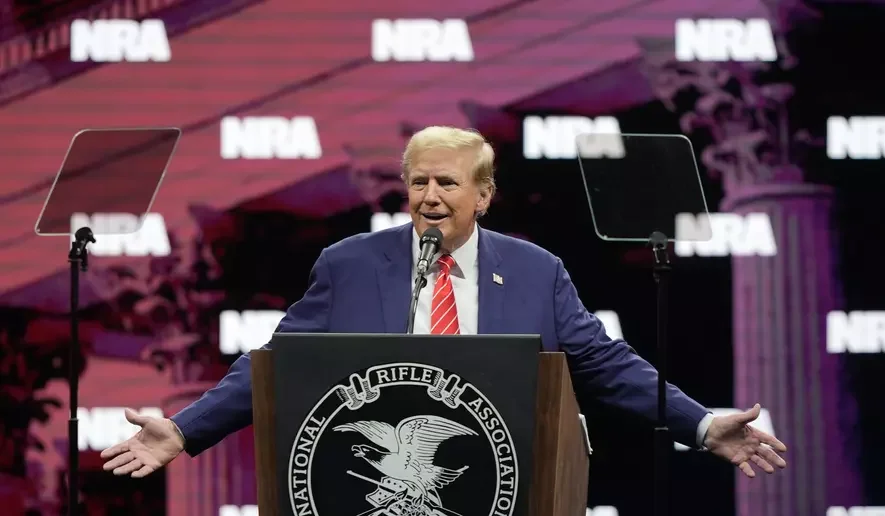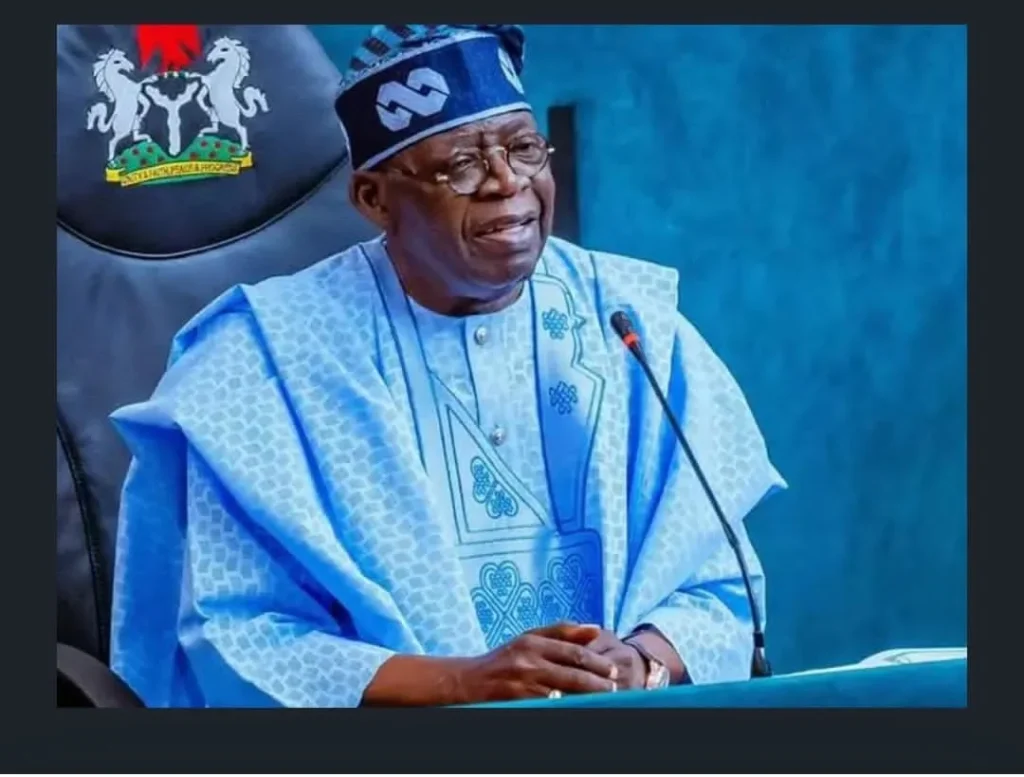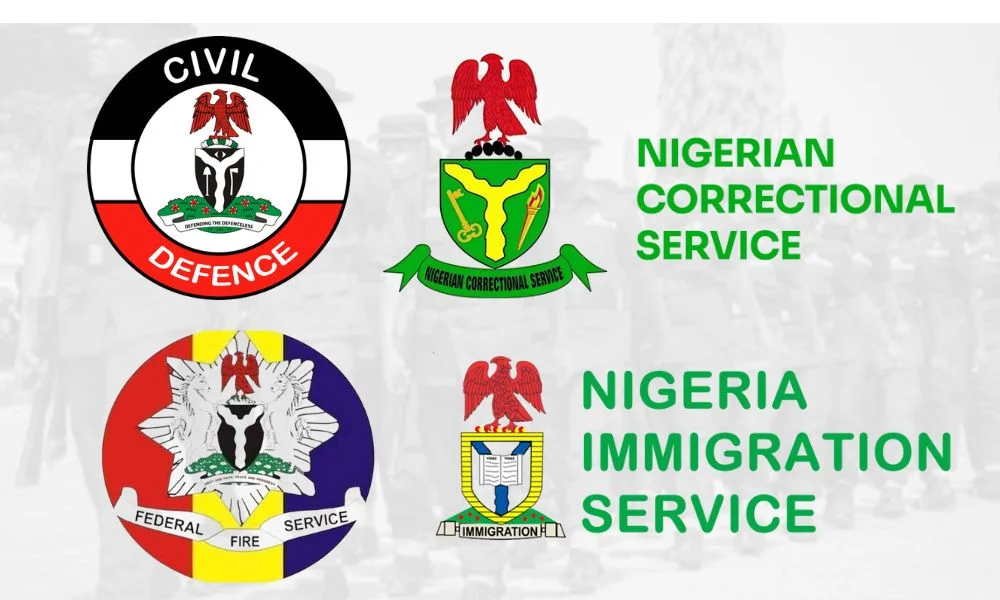As Nigeria approaches the 2023 presidential election, the political landscape remains heavily influenced by ethnic and religious sentiments rather than ideological competition, a trend distinct from more advanced democracies.
On July 20, 2022, the All Progressives Congress (APC) unveiled former Borno State Governor Kashim Shettima as the running mate for its presidential candidate, Bola Ahmed Tinubu, forming a controversial Muslim-Muslim ticket.
This decision sparked significant backlash, particularly from Christian voters across parties, with prominent APC figures like former Secretary to the Government Babachir Lawal calling it a “disastrous error” and Senator Ishaku Abbo labeling it “irresponsible” and “insensitive” to Nigeria’s diverse political fabric.
Electoral Dynamics and Regional Influences
The recent Osun State gubernatorial election, where incumbent APC Governor Gboyega Oyetola lost to PDP’s Ademola Adeleke, signals a shift in Nigeria’s electoral dynamics.
Tinubu, a key political figure in the Southwest, failed to secure the APC’s hold on Osun, suggesting a decline in traditional “godfatherism” and the power of incumbency.
The new Electoral Act has enhanced transparency and efficiency, though vote-buying incidents by both APC and PDP were reported, indicating persistent challenges in the electoral process.
The presidential race is expected to be closely contested among three frontrunners: Bola Tinubu (APC), Atiku Abubakar (People’s Democratic Party – PDP), and Peter Obi (Labour Party – LP).
According to official results from the Independent National Electoral Commission (INEC), Tinubu won with 37% of the vote (8.8 million votes), followed by Abubakar with 29% (6.9 million votes) and Obi with 25% (6.1 million votes).
Rabiu Kwankwaso of the New Nigeria Peoples’ Party (NNPP) secured 6% (1.5 million votes). Each candidate won 12 states, reflecting a fragmented electorate influenced by regional and ethno-religious factors.
Regional Vote Split and Ethno-Religious Sentiments
-
Bola Tinubu (APC, Yoruba, Muslim): Tinubu’s strong base in the Southwest, particularly in APC-controlled states like Lagos, Ogun, and Ondo, was expected to deliver significant votes. However, his loss in Lagos to Obi, driven by young voters and the Igbo community, was a notable upset. The Muslim-Muslim ticket, pairing Tinubu with Shettima (a northern Muslim), drew criticism for lacking religious balance, alienating Christian voters in the North Central (Middle Belt) region, where ethnic and religious diversity amplifies sensitivity to such decisions. Despite this, Tinubu secured strong support in the Northwest and parts of the Northeast, leveraging APC’s grassroots networks and northern alliances.
-
Atiku Abubakar (PDP, Hausa-Fulani, Muslim): Abubakar, with Delta State Governor Ifeanyi Okowa (a Christian from the South-South) as his running mate, relied on PDP’s traditional strongholds in the Southeast and South-South. However, internal party rifts, notably with the Nyesom Wike-led G5 governors, weakened his campaign. Abubakar’s Fulani heritage and northern roots secured votes in the Northeast, particularly Adamawa, but his candidacy faced resistance due to perceptions of northern dominance following President Buhari’s eight-year tenure. The Southeast and South-South votes were split with Obi, limiting Abubakar’s gains in these regions.
-
Peter Obi (LP, Igbo, Christian): Obi’s candidacy disrupted the APC-PDP duopoly, galvanizing young voters and the Southeast, where his Igbo heritage resonated. His victory in Lagos, a cosmopolitan hub with a significant Igbo population, and the Federal Capital Territory underscored his appeal among urban, educated youth. The Labour Party’s lack of deep-rooted structures limited its reach in the core North, where Obi’s Christian identity and regional profiling as a Southeastern candidate hindered broader support. Nonetheless, his 11 state wins, including in the Middle Belt, reflected a growing “third force” challenging traditional power structures.
Impact of Ethnic and Religious Sentiments
The 2023 election highlighted Nigeria’s deep ethnic and religious divisions. Tinubu’s Muslim-Muslim ticket heightened tensions, with some Christian APC members defecting or withdrawing support, fearing marginalization.
Abubakar’s nomination, despite PDP’s southern strongholds expecting a Southeastern candidate, fueled perceptions of northern bias, costing him votes in the South.
Obi’s campaign capitalized on frustrations with the APC and PDP, but his Igbo identity led to ethnic profiling, limiting his northern appeal.
The low voter turnout of 29%, compared to 35% in 2019, and reported irregularities, such as delays in polling materials and issues with the Bimodal Voter Accreditation System (BVAS), further underscored regional frustrations, particularly in opposition strongholds.
The PDP and LP contested the results, alleging fraud and lack of transparency, though INEC denied these claims.
Prognosis and Outcome
While pre-election analysis favored Tinubu due to APC’s strongholds in the Southwest and North, the split opposition vote was decisive.
Had the PDP remained united, with Obi and Kwankwaso not defecting to LP and NNPP, their combined 60% vote share could have defeated Tinubu’s 37%.
The election results, with each candidate securing 12 states, reflect a fragmented electorate where ethnic and religious identities heavily influenced voting patterns.
Tinubu’s victory, despite controversies, underscores his strategic alliances and the APC’s organizational strength, though his administration faces the challenge of uniting a divided nation.
Recent Developments
Post-election, Tinubu’s administration has focused on economic reforms, including a $2.25 billion World Bank loan in April 2025 to bolster reforms and a projected current account surplus of 9.4% of GDP by 2026.
On July 22 and 25, 2025, Tinubu pushed for financial integration through the PAPSS payment system and a N4 trillion bond to address power sector liabilities, signaling efforts to stabilize the economy amid ongoing ethno-religious tensions.






